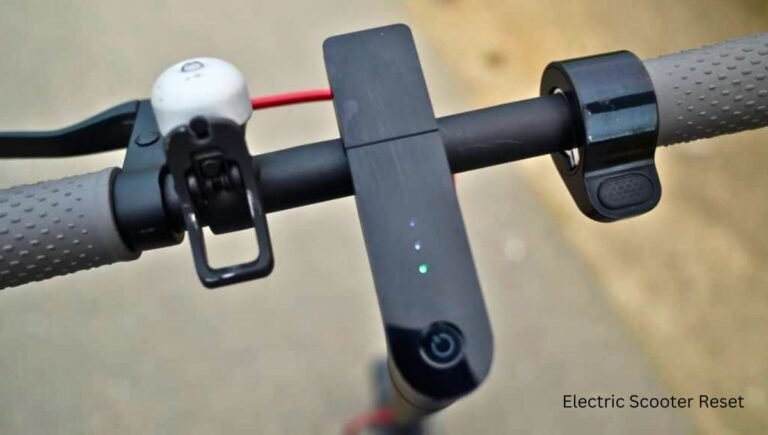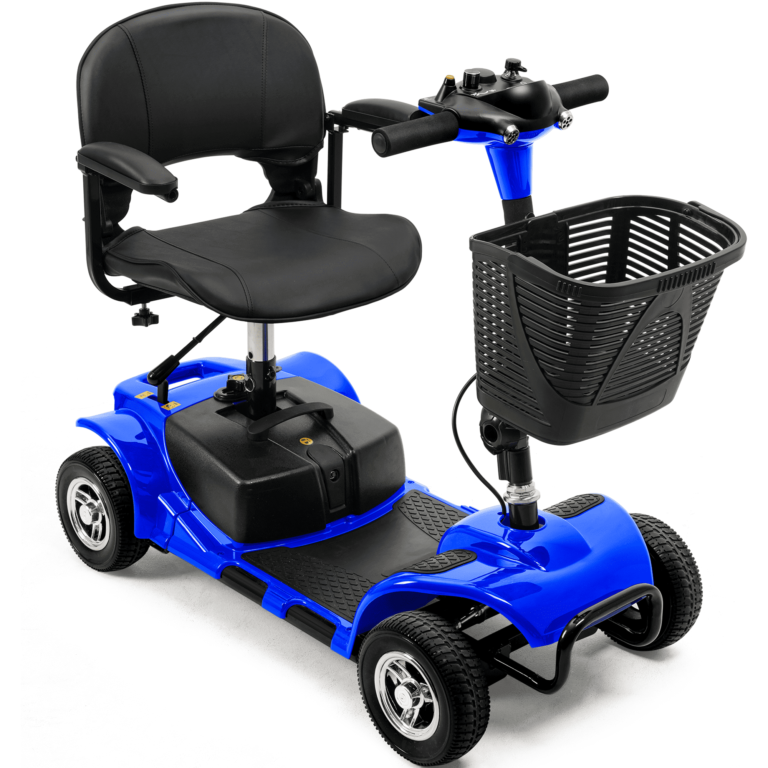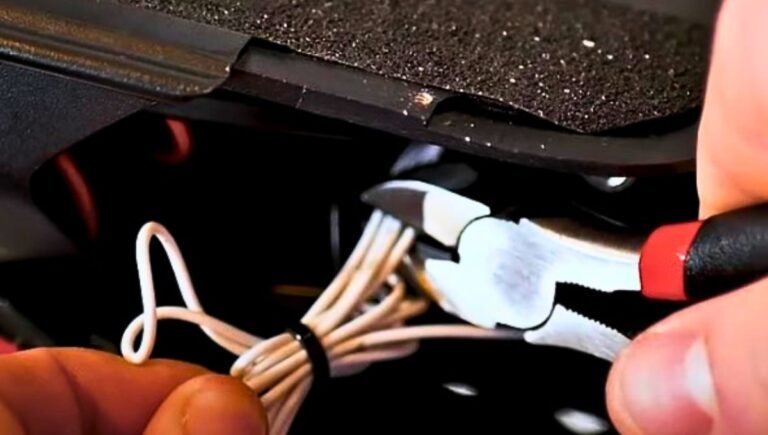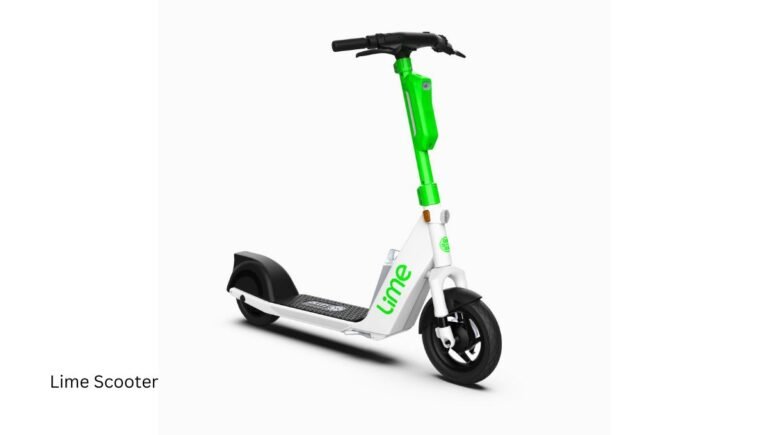Do I Need a License Plate for a Scooter? Unveiled!
Yes, you need a license plate for a scooter. In most states, any vehicle that operates on public roads must be registered and display a license plate.
This includes scooters, mopeds, and other low-speed vehicles. Failure to register your scooter and obtain a license plate can result in fines and legal issues.
In most states, scooters must be registered and display a license plate, just like any other motor vehicle. Failure to comply with these requirements can result in fines and legal issues. It is important for scooter riders to understand the laws in their state and ensure that they are properly registered and licensed to ride on public roads.
Navigating Legal Requirements
When it comes to owning a scooter, navigating the legal requirements is essential to ensure compliance with local laws. Understanding the varied legislation across regions and obtaining the essential documents for scooter ownership are crucial steps in this process.

Varied Legislation Across Regions
It’s important for scooter owners to familiarize themselves with the specific laws and regulations in their local area to ensure compliance.
Essential Documents For Scooter Ownership
These may include registration papers, proof of insurance, and a valid driver’s license. It is crucial for scooter owners to have these documents readily available and to ensure that they are kept up to date to avoid any legal issues.
Scooter Classification And Licensing
Understanding the classification of scooters and the corresponding licensing requirements is essential for scooter owners and enthusiasts. In this article, we will explore the different types of scooters, mopeds, and motorcycles, and discuss how engine size impacts the licensing needs.
Differentiating Scooters, Mopeds, And Motorcycles
Before delving into licensing requirements, it is important to differentiate between scooters, mopeds, and motorcycles. While these terms are often used interchangeably, they refer to distinct categories of vehicles.
A scooter typically features a step-through frame, a platform for the rider’s feet, and small wheels. It is powered by an internal combustion engine or an electric motor. Scooters are designed for easy maneuverability and are popular for urban commuting.
A moped, on the other hand, is similar to a scooter but has a lower maximum speed and engine displacement. Mopeds often have pedals and are capable of being propelled by both the engine and human power. These vehicles are commonly used for short-distance transportation.
A motorcycle is a two-wheeled vehicle with a higher engine displacement and greater power compared to scooters and mopeds. Motorcycles are designed for higher speeds and are suitable for long-distance travel.
Impact Of Engine Size On Licensing Needs
When it comes to licensing requirements, engine size plays a significant role. In most jurisdictions, the engine size determines whether a license plate is needed for a scooter or any other similar vehicle. The specific engine size limit varies from region to region.
In some areas, scooters and mopeds with engine sizes below a certain threshold may be exempt from requiring a license plate. These vehicles are often classified as low-speed vehicles and can be operated with a regular driver’s license or even a moped-specific license.
However, if the engine size exceeds the specified limit, the scooter or moped is typically classified as a motorcycle. In such cases, obtaining a motorcycle license and registering the vehicle with a license plate becomes mandatory.
To determine the licensing needs for your scooter, it is crucial to consult the local Department of Motor Vehicles or equivalent authority. They can provide accurate information regarding the engine size limits, licensing requirements, and any additional regulations specific to your area.
Remember, it is important to comply with the licensing requirements to ensure legal operation of your scooter and to avoid any potential penalties or fines.
License Plate Basics
Yes, you need a license plate for a scooter. In most states, scooters are classified as motor vehicles, requiring registration and a license plate. It’s essential to check your local Department of Motor Vehicles for specific requirements.

The Purpose Of Having A License Plate
License plates are an essential requirement for any vehicle on the road, including scooters. The primary purpose of a license plate is to identify the vehicle and its owner. The unique number on the plate helps law enforcement agencies keep track of the registered owner, making it easier to track down a stolen scooter or identify a driver who breaks traffic laws.
Consequences Of Riding Without A License Plate
Riding a scooter without a license plate is illegal and can lead to severe consequences. In most states, a scooter without a license plate is considered unregistered, and driving an unregistered vehicle can result in hefty fines. Riding without a license plate can also lead to impounding of the scooter, and the owner will need to pay additional fees to recover it.
Moreover, if you are involved in an accident while driving an unregistered scooter, your insurance company may refuse to cover the damages. Additionally, driving without a license plate can lead to legal troubles, affecting your driving record and increasing your insurance rates.
To avoid any legal issues, make sure your scooter has a license plate and is registered with the Department of Motor Vehicles in your state. It is always better to follow the rules and regulations to avoid any unwanted consequences.
State-specific Scooter Laws
State-specific scooter laws vary across the United States, and understanding the regulations in your area is crucial for scooter owners. Each state has its own set of rules and requirements regarding scooter licensing and registration. Familiarizing yourself with the specific laws in your state can help you avoid potential fines and legal issues related to operating a scooter without the necessary documentation.
Case Studies: Regulations In Various States
When it comes to scooter laws, different states have different requirements. Here are some examples of state-specific regulations:
- California: In California, scooters with engines smaller than 150cc are not required to be registered or insured, but riders must have a valid driver’s license.
- New York: New York state law requires scooters to be registered and insured, and operators must have a valid driver’s license with a motorcycle endorsement.
- Texas: In Texas, scooters with engines under 50cc do not need to be registered or insured, and operators must have a valid driver’s license.
How To Stay Informed On Local Laws
Staying informed about local scooter laws is essential for compliance. Here are some ways to stay updated:
- Government Websites: Check your state’s Department of Motor Vehicles website for specific scooter regulations and requirements.
- Legal Resources: Consult legal resources or seek advice from an attorney specializing in traffic laws to ensure compliance with local regulations.
- Community Forums: Engage with local scooter communities and forums to stay informed about any updates or changes in state-specific laws.
Insurance And Registration
A license plate is required for a scooter if it is being used on public roads. Insurance and registration are also necessary to ensure legal compliance and protection in case of accidents or theft. Make sure to check your local regulations to determine the specific requirements for your scooter.
Is Insurance Mandatory For Scooters?
Insurance is an essential aspect of owning a scooter, just like any other vehicle. While the specific insurance requirements may vary depending on your location and local laws, it is generally mandatory to have insurance coverage for your scooter. Insurance provides financial protection in case of accidents, theft, or damage to your scooter.
Having insurance for your scooter not only ensures your own peace of mind but also protects others on the road. Accidents can happen unexpectedly, and having insurance coverage can help cover medical expenses or property damage caused to others in the event of an accident where you are at fault.
When considering insurance for your scooter, it is important to review the different coverage options available. Liability insurance, which covers damages to others in accidents you are responsible for, is typically the minimum requirement. However, you may also choose to add comprehensive coverage to protect against theft, vandalism, or natural disasters.
Uninsured or underinsured motorist coverage can safeguard you if you are involved in an accident with a driver who lacks insurance or sufficient coverage.
The Registration Process For Scooters
The registration process for scooters is another crucial step to ensure you are legally allowed to ride your scooter on public roads. Registering your scooter involves obtaining a license plate and other necessary documents that demonstrate your ownership and compliance with local regulations.
The specific requirements and procedures for scooter registration can vary depending on your location. In general, you will need to gather the following documents:
- Proof of ownership, such as a bill of sale or manufacturer’s certificate of origin.
- Proof of identity, such as a valid driver’s license or identification card.
- Proof of insurance, which is typically required before registration.
- Completed registration application form, which can usually be obtained from your local Department of Motor Vehicles or similar authority.
Once you have gathered the necessary documents, you will need to submit them along with any applicable fees to the appropriate authority. This is often the Department of Motor Vehicles or a similar agency in your area. They will process your application and provide you with a license plate and registration documents for your scooter.
It is important to note that failure to register your scooter can result in fines or other penalties. Additionally, riding an unregistered scooter may void your insurance coverage, leaving you financially vulnerable in case of accidents or other incidents.
Road Rules For Scooter Riders
Scooter riders may need a license plate, depending on local regulations. In some areas, scooters are considered motor vehicles and require a license plate. It’s important to check with local authorities to ensure compliance with road rules.
Safety Equipment Requirements
Riding a scooter comes with its own set of road rules, especially when it comes to safety equipment. In most states, it is mandatory to wear a helmet while riding a scooter. Wearing a helmet helps protect riders from head injuries in the event of an accident. Additionally, wearing protective gear such as knee and elbow pads can further reduce the risk of injury.
Understanding Traffic Laws For Scooters
When riding a scooter, it’s crucial to have a clear understanding of the traffic laws that apply to scooter riders. In many places, scooters are considered motor vehicles and are subject to the same traffic laws as cars and motorcycles. This means that scooter riders must adhere to speed limits, traffic signals, and right-of-way rules just like any other motorist.
Penalties And Legal Consequences
When riding a scooter, it’s crucial to understand the potential penalties and legal consequences for not having a license plate.
Fines And Penalties For Non-compliance
Failure to display a license plate on your scooter can result in:
- Fines from traffic authorities
- Legal penalties for non-compliance
- Possible confiscation of the scooter
Legal Ramifications Of Scooter Infractions
Infractions related to scooter license plates may lead to:
- Legal action by authorities
- Points on your driving record
- Impact on insurance rates
Navigating The Licensing Process
Obtaining a license plate for your scooter is a crucial step in ensuring you are compliant with the law. Here we will guide you through the process of acquiring and maintaining a scooter license plate.
Steps To Acquire A Scooter License Plate
- Check the local DMV website for specific requirements.
- Fill out the necessary forms and provide required documentation.
- Pay the registration fee and any applicable taxes.
- Receive your scooter license plate once approved.
Renewal And Maintenance Of Scooter License Plates
It is important to keep your scooter license plate up to date to avoid penalties. Here are some steps to renew and maintain your scooter license plate:
- Set a reminder for the renewal date.
- Check for any required inspections or emissions tests.
- Complete the renewal process online or at the DMV office.
- Replace any damaged or lost license plates promptly.
Exemptions And Special Cases
Scooters fall under special cases when it comes to license plates. Depending on where you live, you may not need a license plate for a scooter that has a small engine size or falls under certain exemptions. However, it is important to check your local laws and regulations to ensure compliance.
When A License Plate May Not Be Required
Some states exempt scooters under a certain engine size from requiring a license plate.
Electric scooters often fall under this exemption due to their lower speeds.
Special Provisions For Vintage Or Custom Scooters
In some states, vintage or custom scooters may have special provisions regarding license plate requirements.
These provisions may vary based on the age or modifications of the scooter.
Resources And Assistance
Where to Seek Help and Information:
Local Department of Motor Vehicles is the primary resource for scooter license plate requirements.
Online Tools and Services for Scooter Owners:
- Department of Motor Vehicles (DMV) website: Provides detailed information on scooter registration.
- Online forums: Communities of scooter enthusiasts can offer practical advice and support.
- Manufacturer websites: Often have resources on license plate regulations for their models.
Conclusion
Understanding the license plate requirements for scooters is crucial. Compliance varies by location. Stay informed to avoid penalties. Research local laws and regulations for accurate information. Ensure you have the necessary documentation to enjoy safe and legal scooter riding.






